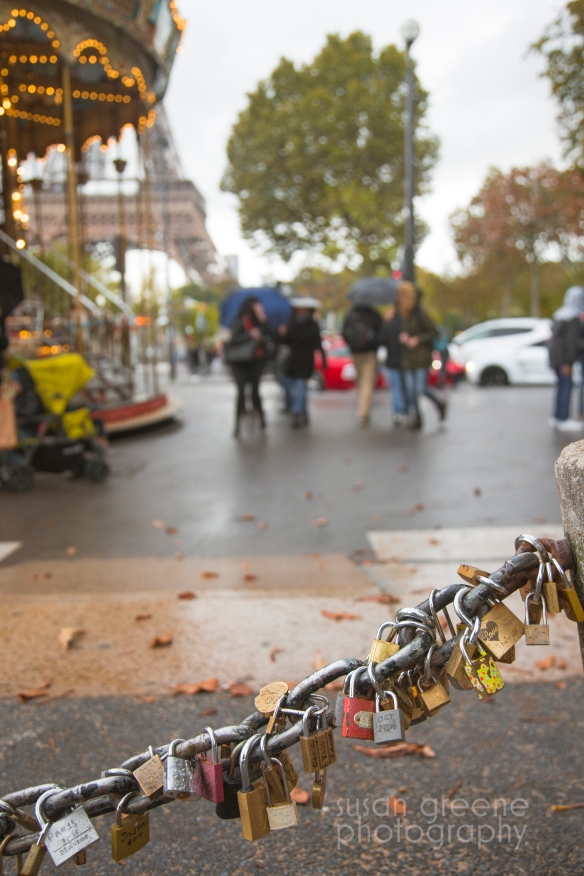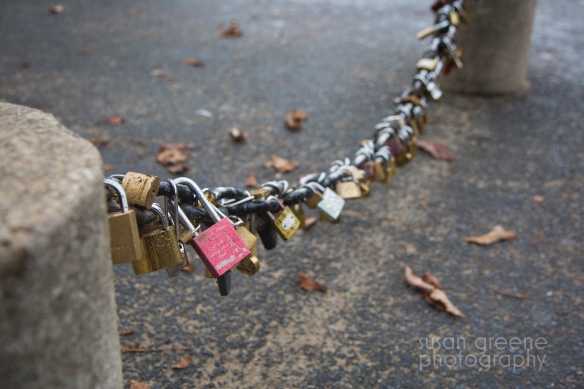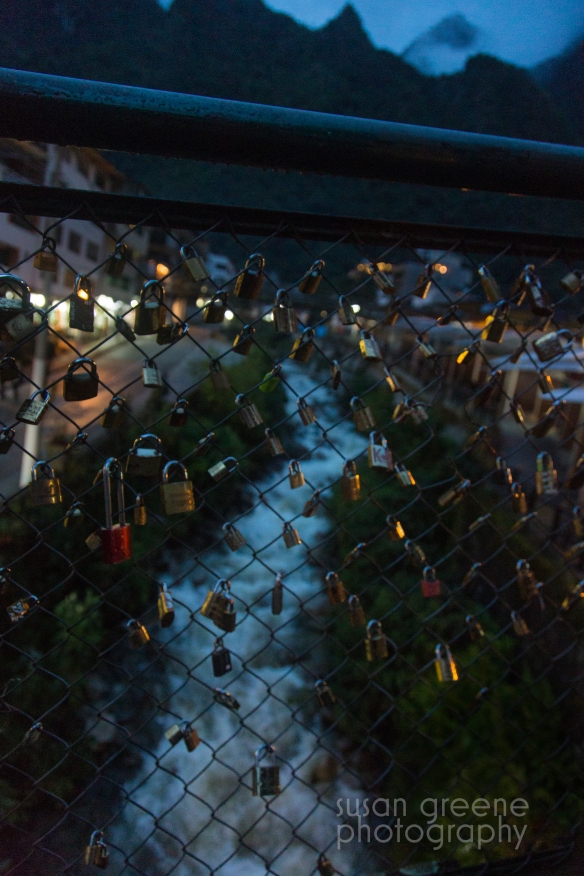This may sound like a story of faith, but mostly it’s about mistrust and fear. Not the kind of fear big enough to scream over, more the slow-moving variety that makes me squeeze my soul and lips tight like the clasp on a granny’s purse until I don’t recognize me anymore.
To the beginning, 16 days before Christmas.

I pull into my driveway. It’s raining. Night. No one is home. No light is on.
I have a trunk load of groceries. Four and a half minutes separate my ranking as either good mom or bad. I lose if I’m late to pick up my daughter from ballet class across town.
A rustling on the wall that divides my home from my neighbor’s startles me as I open the trunk.
“Hey!” says a young man, jumping out of the shadows. He hops over the wall and drops two feet from my toes.
“Hey,” he repeats as if maybe I didn’t hear him, see him, already have time to wonder what he’s doing materializing from the storm like this at 8:30 at night. He talks fast.
“I’m not looking for charity, see, I’m just trying to make a better life for myself, see, all’s I’ve got to do is sell magazines, get to 15,000 points and I’ve earned my way, see, I only need 300 more points and your neighbor, Ron, he just asked me in for cinnamon rolls and bought a magazine and all I need is 300 more points and I’ve earned my way do you want to buy some magazines? Say, is that McDonald’s in there? Something sure smells good for dinner. Did you go to McDonald’s?”
He pauses for air, flashes big, clean white teeth at me.
I lean in, trying to smell cinnamon on his breath. I search for crumbs or icing smudges on his lips. He’s dressed in a well-knit sweater, navy blue pants, heavy boots. He has that wide, wide smile.
I turn away. Walk up the steps to the porch, to the shelter. It’s still dark. He follows.
I never buy anything from doorway solicitors I prepare to tell him. I already have six subscriptions to magazines I don’t read. They were bought from my children as school fund-raisers.
The children. It’s a good thing they’re not here to see their mother so foolish as to lead a man who jumped out of the night onto the porch. I pause, keys clutched in my hand, ready to use as a weapon.
“Sure, I’ll help you out,” I say.
This startles both of us.
He smiles again. I see no cinnamon streaks. I look into his deep brown eyes and catch a straight gaze.
“Here, let me just give you $20,” I say, glancing down at my purse. I am not following those eyes into any sort of trust.
“Oh no ma’am,” he says, shaking his head. “They won’t let us take money. No cash. You have to buy a magazine subscription. You can pay by check. Boy, that food smells good.”
I blink. I’ve already leapt off my cliff of prudence, talking to this man alone on the porch in the dark and now I’m feeling guilty because I’m not giving him my dinner and I don’t want to give him a check. There’s a lot of information on a check. My name. Phone number. Address. Signature.
My credit information was stolen once. Some lady was charging up jewelry at JC Penney and televisions and calling herself me. I didn’t find out until I went to buy a new house and discovered my credit report was marred with dozens of delinquent accounts for tens of thousands of dollars. The police traced the theft to a ring of credit pirates working at a car dealership where I’d written a check as down payment. It took two years to clear my name.
No, I can’t give this stranger a check. Tomorrow I’ll start to be a more trusting person.
“Let me see what magazines you’ve got,” I say, surprising us both again. He replies with that wide smile, all teeth. I wonder if it’s the good fortune of not being turned away, or the thrill of having duped me.
I open the front door and turn on the porch light. We stand like moths, hovering in the circle of light, not in, not out.
“I am really late now,” I say, flipping through a phone book size listing of magazines and prices all written in tiny script. I say I’m in a hurry because I have to pick up my daughter and then he asks where she is and I imagine he’s gauging how long I’ll be gone so he can steal all the presents piled under the tree.
“Man, your neighbor, Ron sure is nice. Man, those cinnamon rolls were sure good,” he says rubbing his navy blue sweater with his big hand. Grinning. Again, I lean closer trying to smell cinnamon. I size him up. Me versus him. I’m not sure who would win.
I try to pretend he’s the Messiah and I’m the old innkeeper who would like to invite him in this time to prove that 2,000 years have brought changes, that my faith is bigger than my fear. I can’t do it. I tell myself it’s because I don’t have time. What I don’t have is faith in strangers.
I order Catholic Digest, partly because it’s the cheapest magazine, but mostly it’s my personal challenge to God. You’ve given me faith to trust a stranger now don’t let me down.
I get a yellow receipt. The stranger gets my signature, address, phone number, bank account.
I lock the door, leave the porch light on and roar out the driveway, windshield wipers flapping. I slow to wave goodbye to this stranger, to get one more good look at him. He’s gone. Not in my yard. Not on the porch next door. Not across the street.
I think about calling Ron and asking him about those cinnamon rolls. I think about calling the police. I veto any action that involves telling a soul how foolish I was.
My bank statement shows the check cashed on December 24.
I wait.
Then one ordinary day, Baby Jesus arrives in my mailbox disguised as a magazine. Tucked between bulky campaign literature and my new Crate & Barrel catalog is the January issue of Catholic Digest. I don’t think I’ve made a mistake with this selection because it has a nativity scene on the front even though the cover says January. The lasting gift. I see this as a private joke and chuckle.
“What’s so funny?” my daughter and son wonder, pawing through the pile of mail.
I tell them how I was just thinking that the world is mostly a beautiful place and they better remember that always.
Two days later, the February and March issues arrive together. I suppose that too is some sort of private joke. Make no mistake now, they seem to say, you are caught up on promises made by strangers.
I suppose that means it’s my move again.
 With an eye toward the light of the season,
With an eye toward the light of the season,
~Catherine
p.s. This story, in a slightly different version, first appeared in Los Angeles Times Magazine, Dec. 3, 2000.

























